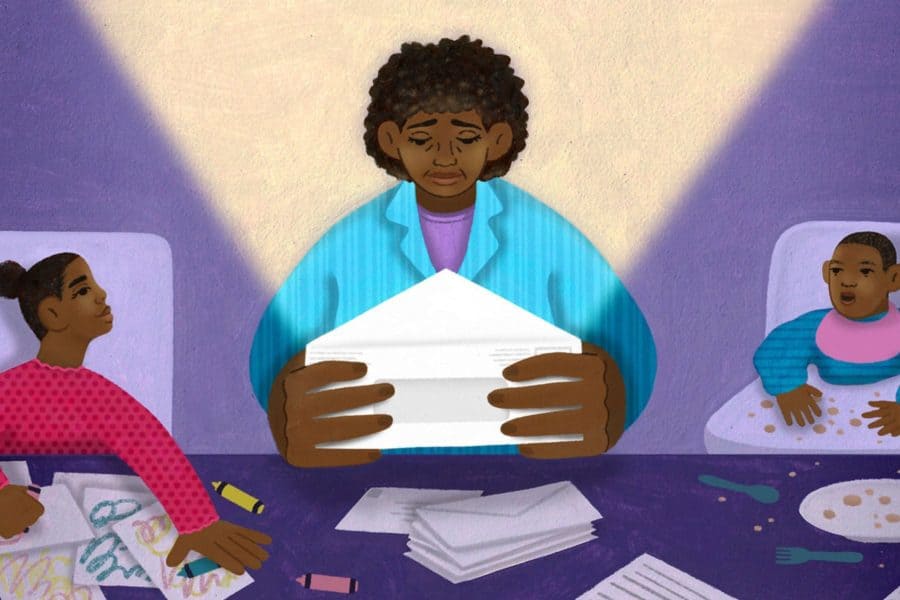What happens when you give people money? Dr. Aisha Nyandoro and Natalie Foster know: through their research, they’ve seen the impacts of guaranteed income firsthand.
On November 9, as part of the Duke Center for Child and Family Policy’s Sulzberger Distinguished Lecture series, these experts discussed their work and what we can learn from it at “What Happens When You Give People Money: The Future of Economic Security for Children and Families.”
Foster, co-founder and co-chair of the Economic Security Project, began with the big idea of guaranteed income. Before the pandemic, wealth and income inequality were at all-time highs — disparities that “can be traced back to the origins of racialized capitalism.” But recently, things have gotten even harder. Wages have remained stagnant despite increases in productivity — and despite inflation, making it harder to afford things like rent. Foster denounced the “strong ideology that says that lack of security in this system is a personal failing. That if you can’t pull yourself up, there’s something wrong with you.” There’s something wrong with the system, Foster said. “People are working. The economy isn’t.”
Foster explained that the 1996 “Personal Responsibility and Work Opportunity Reconciliation Act” fundamentally changed welfare by converting the old New Deal-era unlimited grant program into the flat-funded block grant we now know as TANF, leaving determination of eligibility to state discretion and generally “making welfare more punitive.” The Act, Foster said, was built on racist stereotypes, like that of the welfare queen. To make matters worse, it was passed against the backdrop of a persistent devaluation of the labor of people of color.
Foster said that even though there didn’t appear to be room in these political conditions to do things differently, she had the “audacity to imagine something else: the ‘adjacent possible.’” She wanted to give cash to people directly, ensuring an income floor regardless of whatever crises that may abound.
Foster worked with the mayor of Stockton, California on the Stockton Economic Empowerment Demonstration (SEED), which provided 125 Stockton residents with $500 monthly payments for two years.
Foster was connected by a mutual friend to Nyandoro, the CEO of Springboard to Opportunities. Nyandoro had launched The Magnolia Mother’s Trust, which provides low-income Black mothers in Jackson, Mississippi with $1,000 monthly payments for one year.
With The Magnolia Mother’s Trust, Nyandoro sought to shift away from economic policy “rooted in ‘what is,’ and toward ‘what could be.’” This concept has a rich history, she said, and includes the work of Martin Luther King Jr. and the Black Panthers. She had a specific ‘what if’ in mind: “What if when Black women told us what they needed, we believed them?” What if we sought to overturn the very structures that keep these people down, and subverted the “paternalistic nature of the social safety net”?
Nyandoro stated that as a researcher, when she has questions, she “goes back to the people.” When she did, she found that although people’s needs were individual, “cash was ubiquitous” — cash was a solution that could address every single one of the problems that she heard. Giving cash directly could help combat a system that “penalizes people for being poor, rather than trying to lift them out of poverty.”
Why low-income Black mothers? Nyandoro explained that in order to do the work of economic liberation, one must identify what’s wrong with the system. In this case, that meant identifying those who are the most negatively impacted by the system, and using what limited resources are available to help them specifically.
Nyandoro turned to her findings: giving people cash works. These mothers are often working tirelessly, holding down two or three jobs and struggling to make ends meet. After receiving the money, people continue to work and often do so at higher rates (a major fear of opponents of guaranteed income). As a result, their income is often doubled — with life-changing results.

